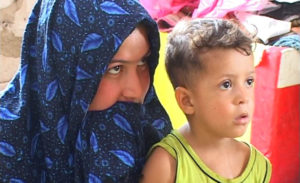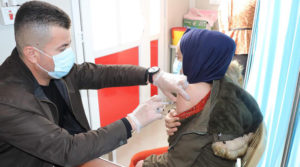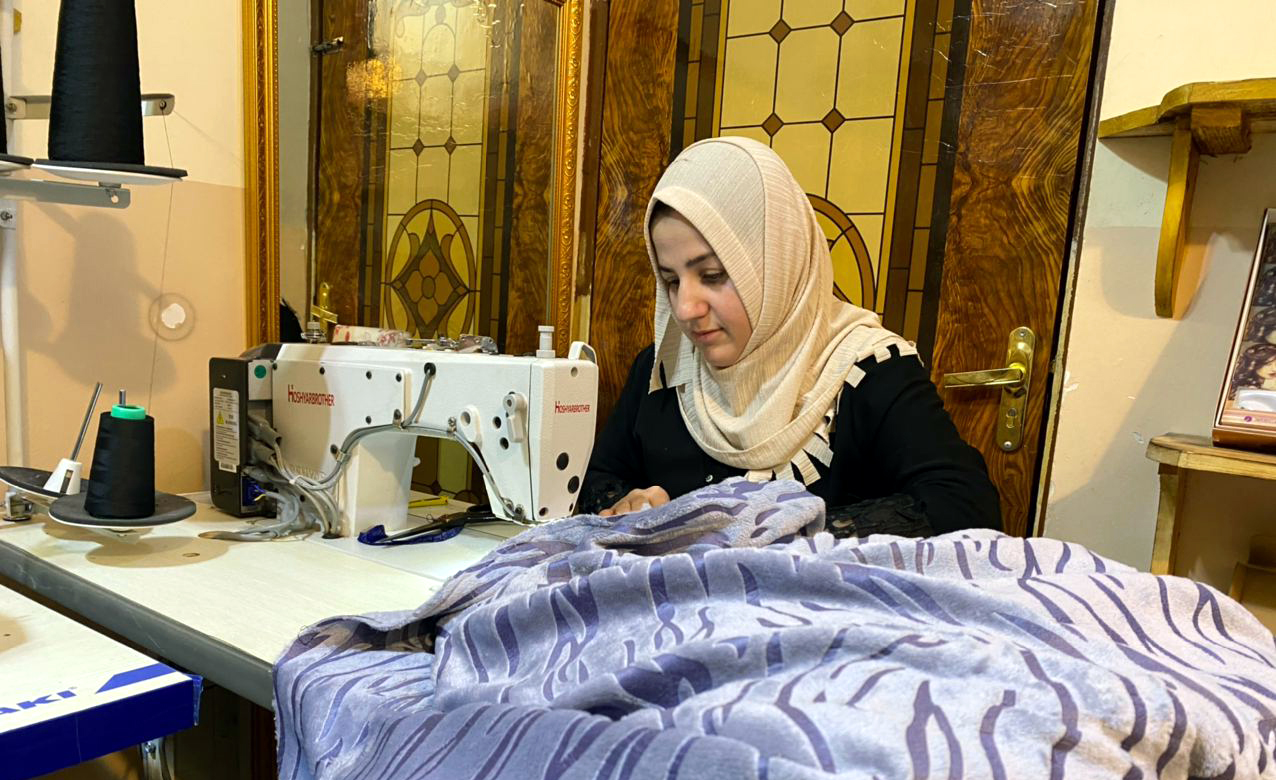
Pirshing’s home nowadays resembles more a bustling bazaar rather than a place of residency: a woman bakes bread in the front yard and cooks in the kitchen; in the other rooms, a number of women are busy sewing clothes, making ornaments and selling them along with textiles.
Part of the front yard of the 200-square-metre house has been turned into a salon for women.
The house that Pirshing has turned into a small market is located in Daquq town, southwest of Kirkuk province. She has dubbed it The Noor Assembly for Women.
I have been able to employ poverty-stricken six women
“Next to the financial side, my aim for this project was providing job opportunity. I have been able to employ poverty-stricken six women,” said the 34-year-old Pirshing Abdulsattar.
Pirshing’s project was brought to the brink of total ruin by the preventive measures taken against the spread of the COVID-19 virus as she was forced to close the doors of her small market.
She says closing the market put her and her colleagues in financial difficulties.
Before the outbreak of the Coronavirus, Pirshing had plans to expand her endeavour in order to prove more job opportunities for women.
“There was a need for job opportunities for [unemployed] women who were sitting home, but the Coronavirus destroyed that dream as well.”
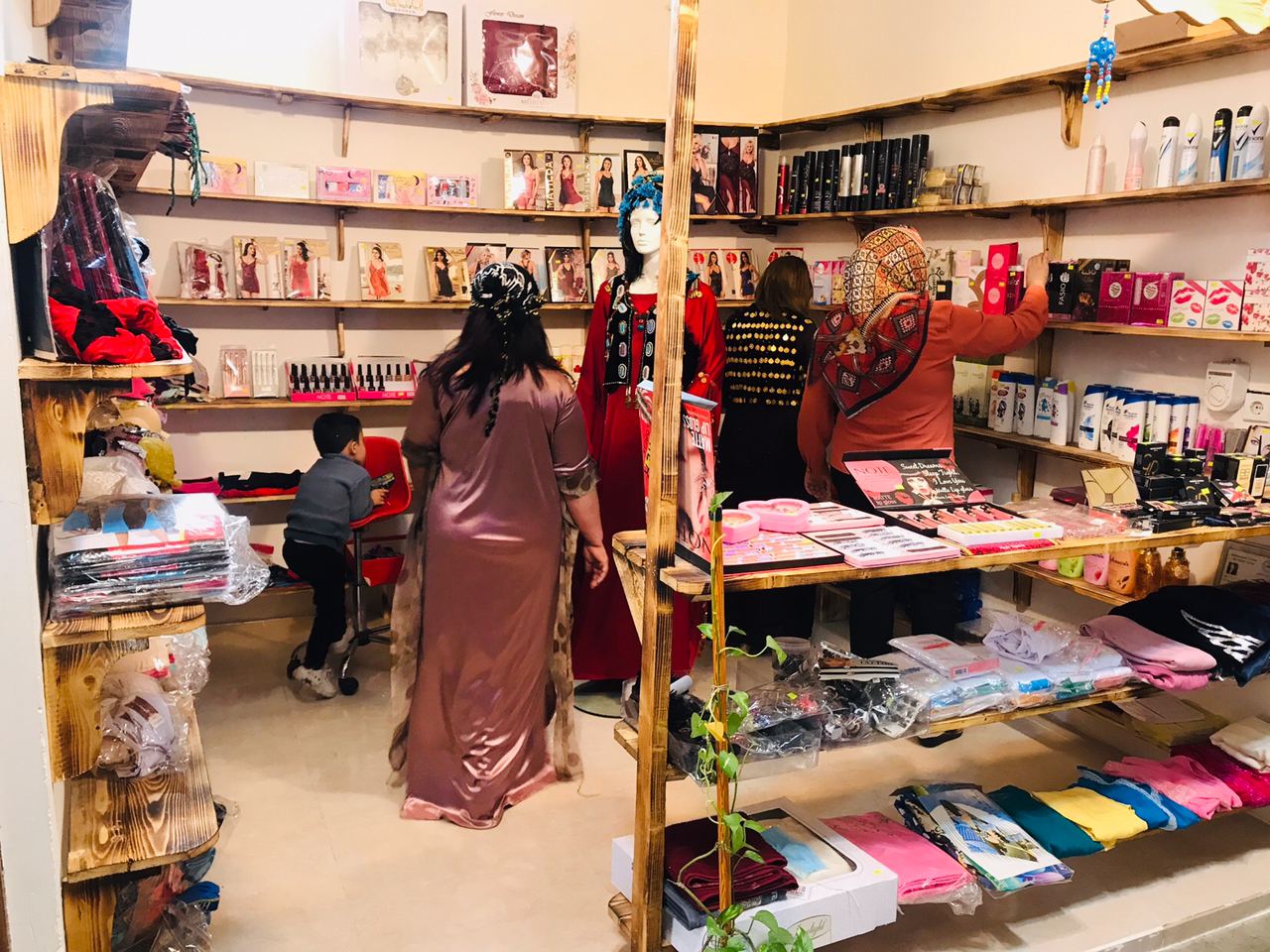
Pirshing still feels downhearted as a few months has already passed since the general curfew was lifted, yet their revenue is still below half of what they were bringing in before the pandemic hit.
She has been working on her project for years. A few years after she gets married, she starts sewing to assist her husband in earning a livelihood, then opens a salon and later adds the other facets to her little market.
Pirshing hails from the Kaka’i community in Nineveh Plain. She got married at the age of 18 and moved to Daquq.
I was the first woman to work independently in the conservative multi-ethnic and multi-religious region
“I was the first woman to work independently in the conservative multi-ethnic and multi-religious region. I have faced many hurdles and uphill battles until I reached what I have today. But the category of our work, the cleanliness and quality of our cooking and the quality of our products has helped us get a large number of customers,” says Pirshing.
Next to the salon and sewing clothes, the little market also functions as a restaurant for customers and also delivers meals.
47-year-old Sabiha Jwamér, who bakes bread at Pirshing’s little market, says: “God first, then Pirshing have provided a job opportunity for me. She has been a great help.”
The pandemic affected Sabiha immensely as she no longer could work. “We lost our livelihood and our lives became harder.” But she is now happy that she has resumed her work and can help provide a livelihood for her family.
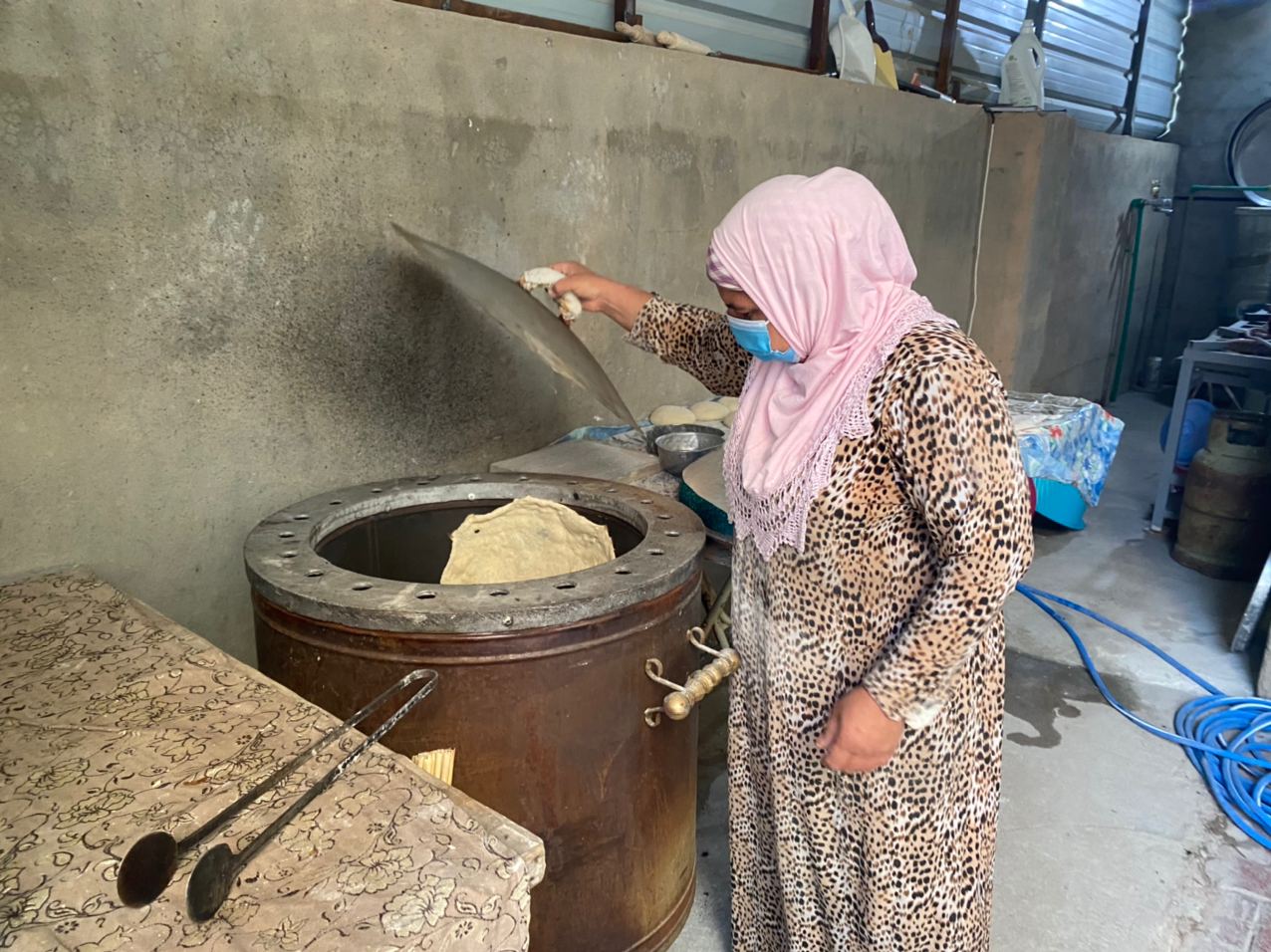
Despite the lifting of the curfew, the danger of the COVID-19 virus still looms and the financial crisis the country suffers still lingers.
Pirshing says that she was compelled to temporarily suspend the work of two of the six women she has employed as they were in charge of preparing food and as customers refrain from buying meals since the outbreak. “I have promised them that they can resume their work if things get better financially.”
The COVID-19 pandemic has slowed down the economy and markets throughout the country.
the pandemic shut the door in our face
Sara Jalal, who has been an employee of Pirshing for several years, says: “Our operation was going smoothly, and we had enough customers. But the pandemic shut the door in our face; it slowed down our work.”
Sara says she and her colleagues are under mental pressure due to the current condition and the slowdown of their work.
But despite the difficulties, Pirshing has no plan to give up and keeps hope for the future and keeps talking to women who come looking for a job.
This article was originally published by KirkukNow.


